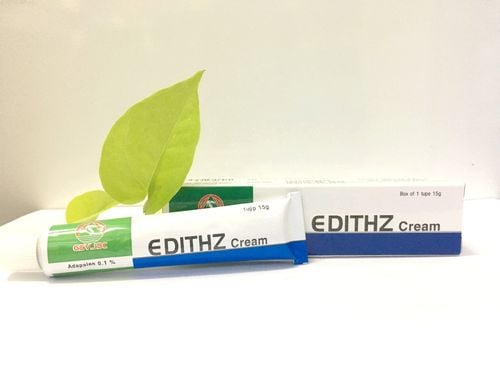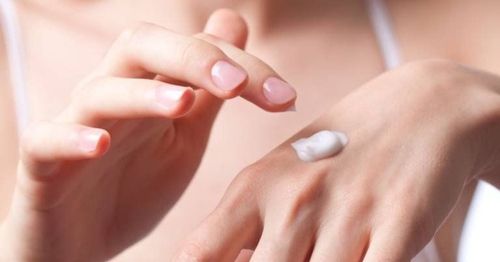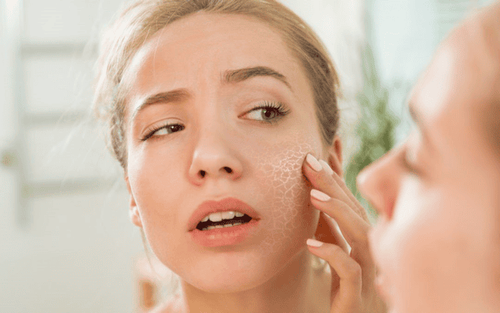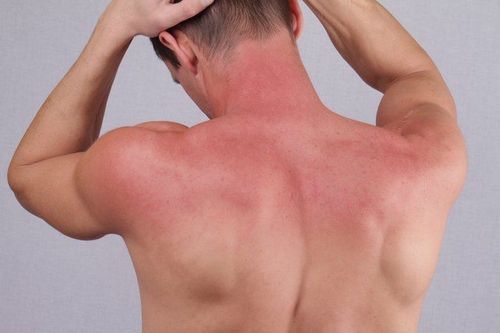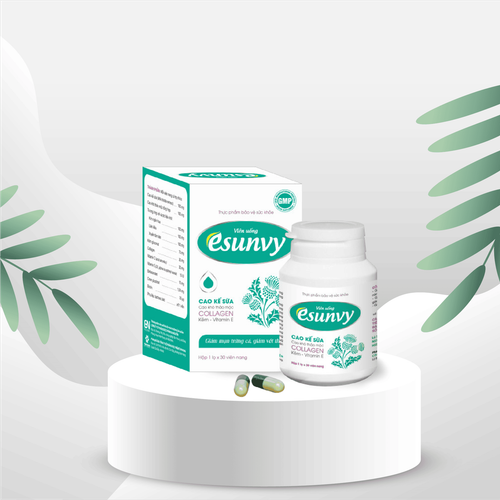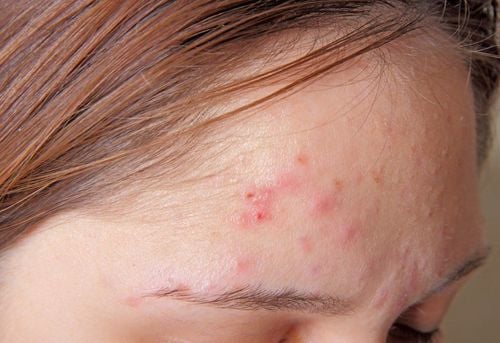This is an automatically translated article.
Acne causes a significant impact on the daily life of patients. In order to get rid of these annoying pimples quickly, it's important to understand how to treat them. The article will provide basic information to be able to choose the right acne treatment method.
1. What are the acne treatments?
Pimples can be masked by cream or cosmetic products. However, when it does flare up, it is necessary to choose the right acne treatment regimen to control and reduce its development.
The best treatments are to inhibit sebum production, limit the growth of bacteria or stimulate the secretion of dead skin cells to open the pores. However, with some acne treatments, there can often be side effects, so when choosing a treatment method, it is necessary to consider and be careful.

Điều trị mụn trứng cá như thế nào?
2. Treating Acne Without Prescription Drugs
2.1. Soap and water Gentle cleansing of the skin with soap and water no more than twice a day can help clear up acne. However, this does not completely clear up pre-existing acne. Moreover, if you wash your face with vigorous scrubbing, it will easily damage the skin and cause other skin problems.
2.2. Detergents Certain chemical ingredients with cleansing properties recommended by experts or dermatologists are commonly used in skin care products such as benzoyl peroxide, glycolic acid, and acid. salicylic or sulfur.
Benzoyl peroxide . For mild acne, you can try or have your doctor recommend an over-the-counter treatment that contains benzoyl peroxide. This compound is known to kill bacteria associated with acne. Using this substance it usually takes at least 4 weeks to work and must be used continuously to work to prevent acne. Like many over-the-counter products, it doesn't affect sebum production or the way dead skin follicles slough off, and when you stop using it, the acne will return.
Benzoyl peroxide is available in creams, lotions, cleansers, foams, and gels. However, it can cause dry skin so care needs to be taken when using it.
Salicylic Acid . On the skin, salicylic acid helps correct abnormal cell shedding. For mild cases of acne, salicylic acid helps unclog pores to prevent damage. However, it does not have any effect on sebum production and does not kill bacteria. At the same time, it must be used continuously to be effective. If you stop using it, the pores will become clogged and the acne will still come back. Sulfur . Combined with other substances like alcohol and salicylic acid, sulfur is an ingredient in many over-the-counter acne medications. However, it is rarely used because it has an unpleasant odor. Topical gel or cream containing retinol. Retinol works to keep breakouts from forming. It affects the growth of cells and increases cell turnover to open pores. When using this ingredient initially the acne may get worse, and then it will work on those pimples and make the condition better. This ingredient must be used continuously for at least 8 to 12 weeks to see results. And it must be used under the prescription of a dermatologist.
Alcohol and acetone . The alcohol is a mild anti-bacterial and the acetone works to remove oil from the skin's surface. These two ingredients are incorporated into some over-the-counter acne medications. However, it has the side effect of causing dry skin and is not effective for acne. Therefore, dermatologists are less likely to recommend this ingredient. Herbs, organics and “natural” medicines. There are many herbal, organic, or natural products that are marketed to treat or prevent acne. However, the effectiveness of these ingredients is still unproven and it doesn't seem to have much benefit in treating acne.
3. Acne Treatment Using Prescription Drugs

Dùng thuốc kháng sinh điều trị mụn trứng cá
3.1. Antibiotics Antibiotics can be used on the skin (topical) or taken orally (systemic). It works by clearing the skin of acne-causing bacteria and reducing inflammation. It is usually contained in a number of products available such as: creams, gels, solutions...
Topical antibiotics are limited in their ability to penetrate the skin and remove acne more deeply, while systemic antibiotics The body can circulate throughout the body and into the sebaceous glands. However, systemic antibiotics often cause more side effects than topical antibiotics.
Usually topical antibiotics are not recommended alone as an acne treatment regimen, as they can increase the risk of antibiotic resistance to bacteria in the skin. However, using benzoyl peroxide with a topical antibiotic may reduce the risk of antibiotic resistance. Topical clindamycin (Cleocin T, Clinda-Derm) and erythromycin (Ilotycin) are antibiotics with anti-inflammatory effects and are effective against some bacteria. However, for it to work, it needs to be combined with benzoyl peroxide or a topical retinol and applied directly to the skin. In addition, oral antibiotics such as erythromycin, doxycycline, minocycline, and tetracycline are all effective in many cases of acne. But, side effects when using these types often will be the risk of antibiotic resistance.
Antibiotics are not the best treatment for the causative factors in acne. At the same time, it needs to be combined with some other drugs to improve the treatment effect. Furthermore, some oral antibiotics for acne should not be used during pregnancy.
3.2. Retinoids or vitamin A derivatives These ingredients are often available in topical or oral medications. Topical retinoids help clear moderate to severe acne by affecting skin growth and secretion. They can be used in combination with other acne products such as benzoyl peroxide and oral antibiotics. Topical retinoids do not have the same serious side effects as oral retinoids. However, they are not recommended for pregnant or nursing women. Side effects of topical retinoids include redness, dryness, and itching of the skin.
For severe acne cases, isotretinoin is the most effective therapy. This is the only drug that can interfere with all causes of acne. It can clear severe acne that has not responded to other treatments.
However, it can cause side effects like dry skin, dry lips, muscle and joint pain, increased triglyceride levels, high liver enzymes...But most users can accept these side effects. In pregnant women, the drug can cause serious side effects such as birth defects. In addition, several studies have also demonstrated that the use of this drug is associated with an increased risk of depression, suicide, and inflammatory bowel disease. Therefore, before using the drug, it is necessary to consult a dermatologist to avoid the potential risks of the drug.
3.3. Azelaic Acid Topical contains azelaic acid in the form of a gel, cream with antibacterial and anti-inflammatory properties. It is commonly used in cases of rosacea but it can also help treat mild acne.
3.4. Dapsone Dapsone is a topical gel with antibacterial and anti-inflammatory properties.
3.5. Oral contraceptives Birth control pills that contain female hormones work by counteracting the effects of male hormones (such as testosterone) on acne. The benefits of birth control pills for birth control acne can last for about 3 to 4 months. However, it can also have side effects such as: nausea, weight gain, spotting, breast tenderness, and blood clots.
3.6. Spironolactone (Aldactone) Spironolactone is an oral medication that works by blocking the action of body hormones in the oil glands in the skin. This medication is not FDA-approved for acne, but is especially helpful for women whose acne gets worse around the time of menstruation and menopause.
Another common medication that dermatologists can use is triamcinolone - a corticosteroid solution that is injected directly into the acne nodules.
4. Some Warnings About Acne Treatments
Patients taking medication for acne should be alert to the possible side effects of the medication and its interactions with other medications and herbs. For example: Topical retinoids and benzoyl peroxide can cause skin to become red, dry, and sensitive to sunlight. On the other hand, benzoyl peroxide can inhibit the effects of some topical retinoids, so never apply them at the same time of day.
Or oral antibiotics can cause sensitivity to sunlight and upset stomach. And taking oral antibiotics for more than a few weeks can make women more susceptible to yeast infections.
Some over-the-counter acne products can cause rare allergic reactions. If you experience symptoms such as a stuffy throat, trouble breathing, feeling faint, or swelling of your face or tongue, see your doctor right away.
5. Acne Scar Treatment
People who suffer from acne and scarring can apply some aggressive techniques to improve scars. Procedures include dermabrasion, certain types of lasers, and chemical peels. This method helps to remove the scar surface and make the skin smoother.
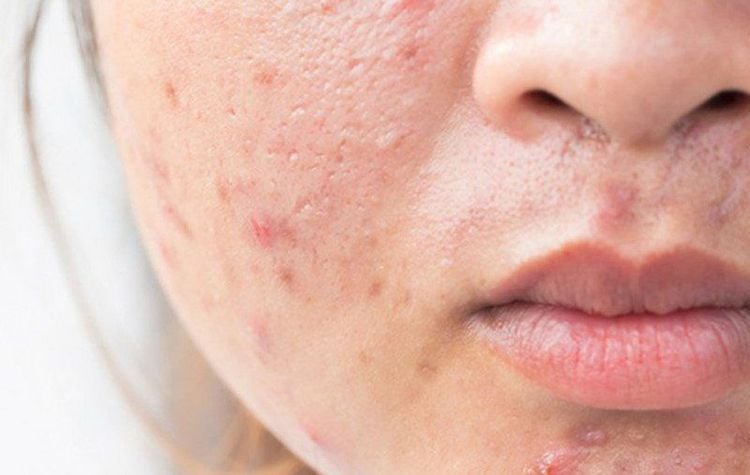
Mụn trứng cá để lại sẹo
6. Some remedies to prevent acne
Use non-comedogenic or sensitive skin care products to reduce the risk of new lesions and minimize skin irritation. Use a gentle cleanser twice a day. Avoid cleansers or products that are granular or have a thick texture. Because, these products can irritate the skin and lead to breakouts. Use a moisturizer and non-comedogenic sunscreen daily. Avoid picking, squeezing, or popping pimples. This can lead to scarring and skin infections. If you have a need for consultation and examination at the Hospitals of the national health system, please book an appointment on the website for service.
Articles refer to the source: Webmd.com
Please dial HOTLINE for more information or register for an appointment HERE. Download MyVinmec app to make appointments faster and to manage your bookings easily.
SEE ALSO:How to choose sunscreen for oily skin The formation and how to take care of skin with blackheads Why shouldn't you squeeze acne?




